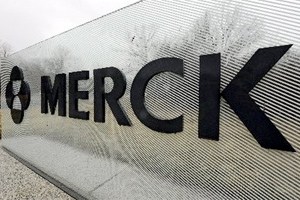 EMA advisors have recommended Merck & Co’s biosimilar version of Lantus, Sanofi’s blockbuster basal insulin product, be approved.
EMA advisors have recommended Merck & Co’s biosimilar version of Lantus, Sanofi’s blockbuster basal insulin product, be approved.
The Committee for Medicinal Products for Human Use (CHMP) has adopted a positive opinion for Lusduna (insulin glargine) for the treatment of diabetes mellitus, after it showed comparable quality, safety and efficacy to Lantus.
An injected solution, the long-acting insulin analogue lowers high blood glucose by binding to the human insulin receptor to induce the same pharmacological effect as human insulin.
Lusduna is now one step closer to European approval, but is facing a patent infringement lawsuit from Sanofi as the company moves to protect its big-selling product.
Last year, Sanofi settled another Lantus patent infringement lawsuit with Lilly, after its Lantus ‘follow-on’ product Abasaglar won FDA approval in December.
As part of that deal Lilly agreed to pay royalties to the French pharma group in exchange for a license to certain of its patents, and launched Abasaglar in the UK in August.
Forteo biosimilars
Meanwhile, the CHMP this month also issued positive opinions for two versions of Lilly’s big-selling osteoporosis therapy Forteo (teriparatide).
Hungarian pharmaceutical firm Gedeon Richter and Germany’s Stada Arzneimittel received recommendations for Terrosa and Movymia respectively, for the treatment of postmenopausal women and men at increased risk of fracture.
Both biosimilars are administered as an injected solution to increase bone mineral density in the lumbar spine and hip as well as reduce the risk of vertebral and non-vertebral fractures.
Lilly’s Forteo brought in $1.35bn in sales last year but its dominant position in the osteoporosis market has been increasingly under threat with the advent of biosimilar and generic competition.
Furthermore, Amgen and UCB’s rival osteoporosis drug romosozumab has demonstrated superior results to Forteo in phase III trials, and analysts have suggested the emerging anti-sclerostin antibody class will bring in well above $1bn in sales in the coming years.




